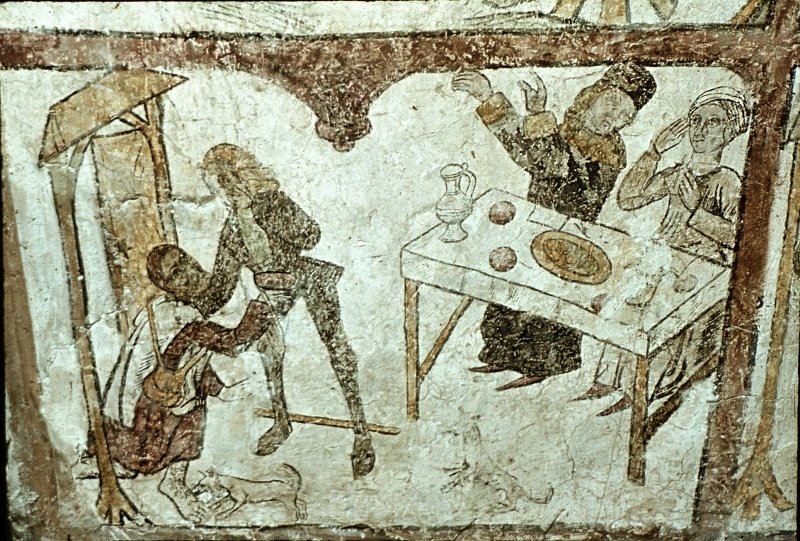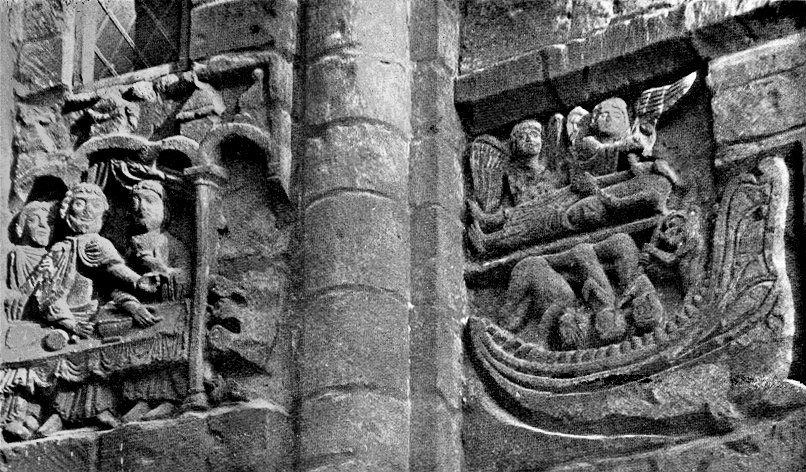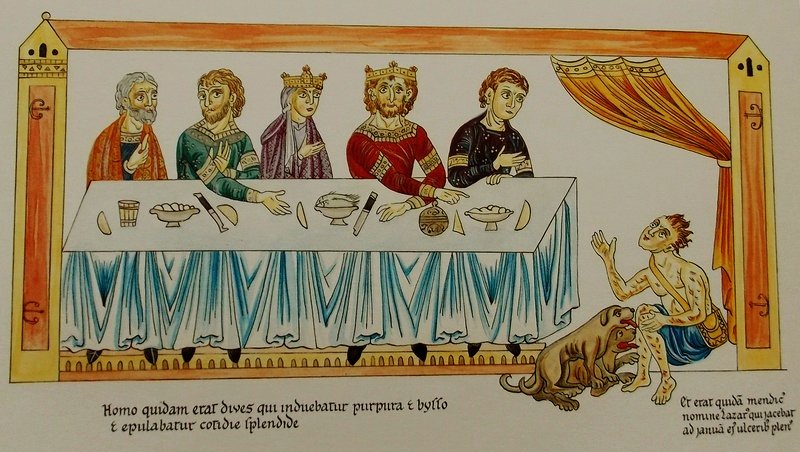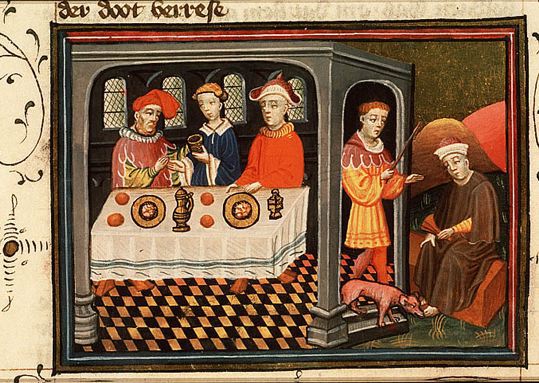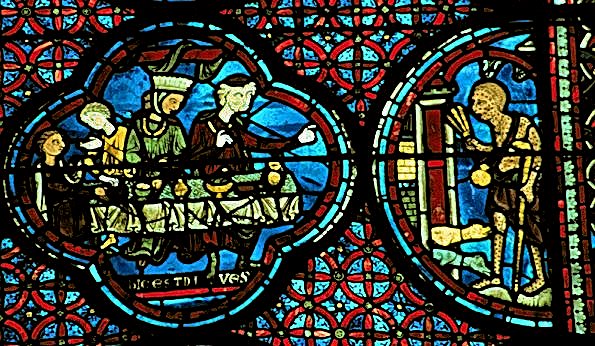Le premier des deux Lazare est évoqué par Luc (XVI, 19-31).
Pauvre homme couvert d'ulcères, lèché par les chiens,
il agonise à la porte d'un riche sans que celui-ci lui porte secours.
A sa mort, il est accueilli dans le sein d'Abraham, tandis que le riche
va en enfer.
Le riche supplie
Abraham d'envoyer Lazare pour qu'il apporte une goutte d'eau sur le doigt.
Abraham lui rappelle son passé de grande consommation
et lui répond que l'abîme entre l'enfer et le paradis de son
sein est infranchissable et infini.
"There was a certain rich man,
who clothed himself in purple and fine linen
and fared sumptuously every day;
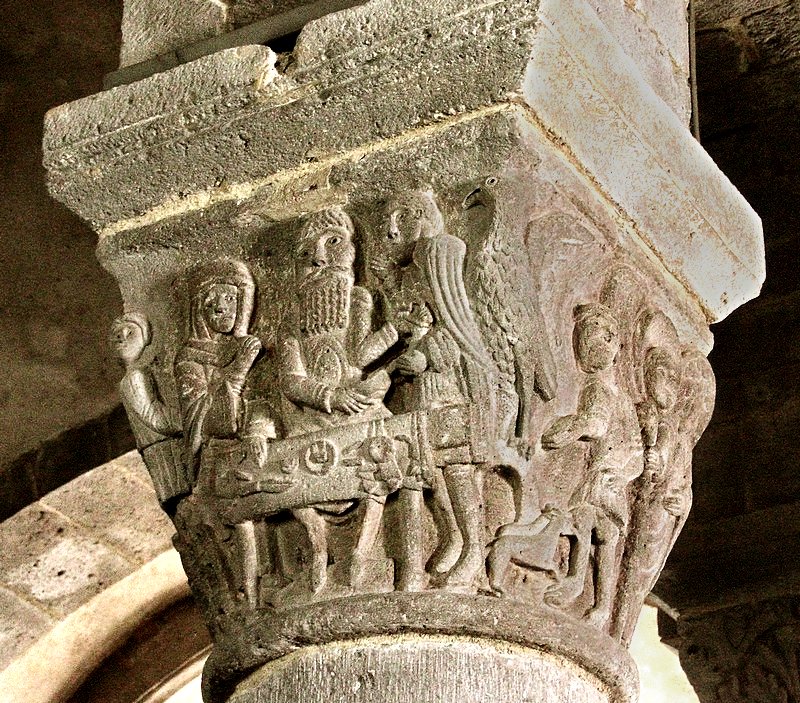
Besse-en-Chandesse (Puy-de-Dôme)
And there was a certain beggar named Lazarus
[Helped by God], which was laid at his
gate
full of sores,
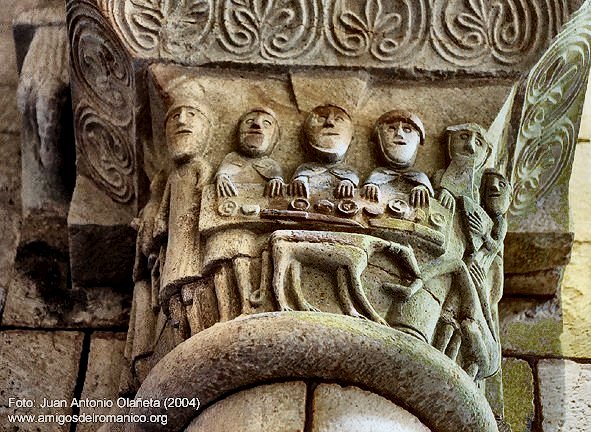
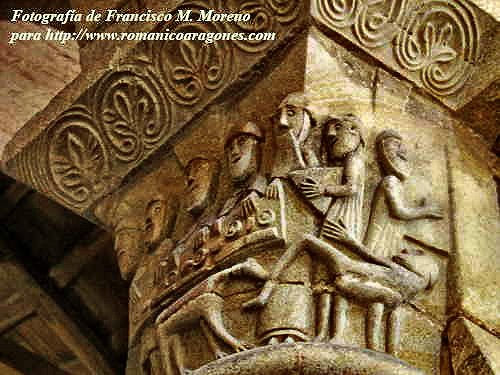
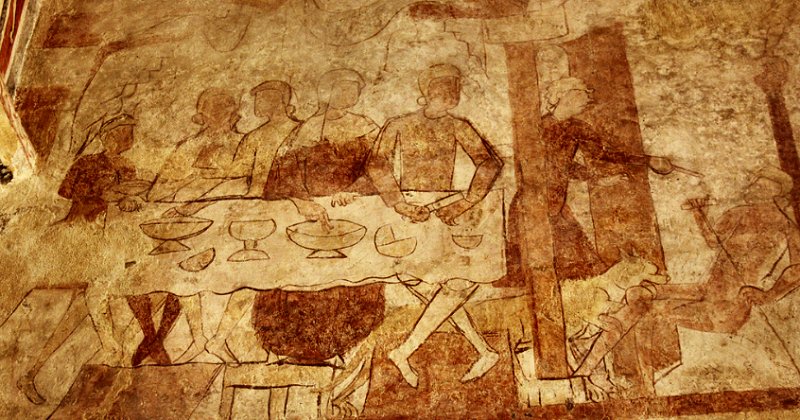
San Martín de Mondoñedo (Lugo), Spain
and desiring to be fed with the crumbs which fell from the rich man's
table.
Moreover the dogs came and licked his sores.
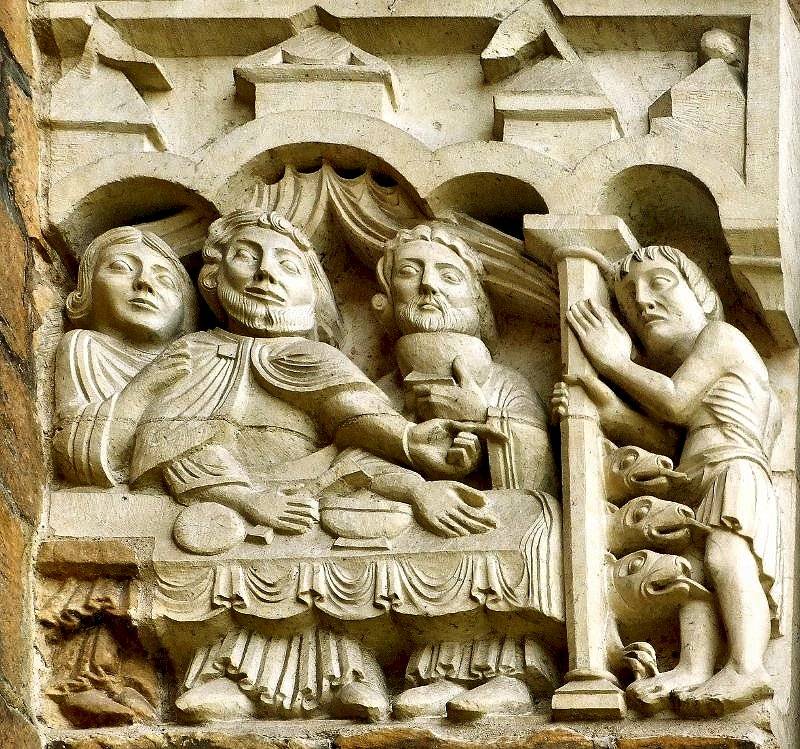
Lincoln (restored)
And it came to pass, that the beggar died and was carried by the Angels
into Abraham's bosom.
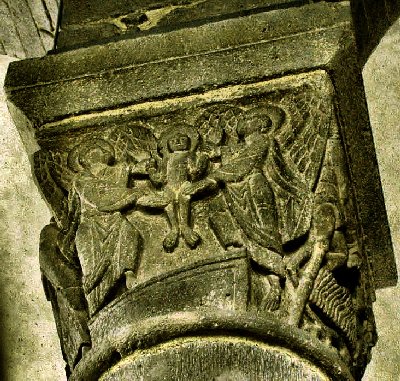
Besse-en-Chandesse (Puy-de-Dôme)
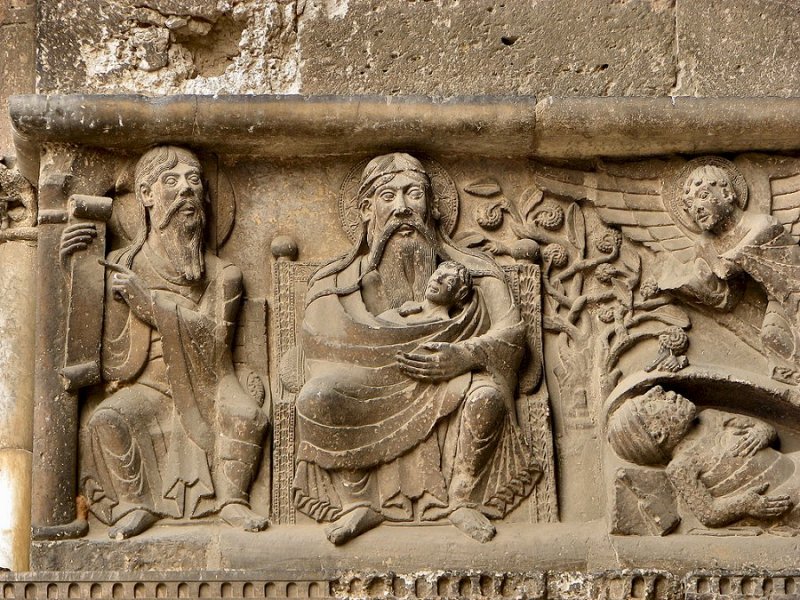
Lincoln (restored)
The rich man also died, and was buried;
And in hell he lift up his eyes, being in torments, and seeth Abraham
afar off
and Lazarus in his bosom.
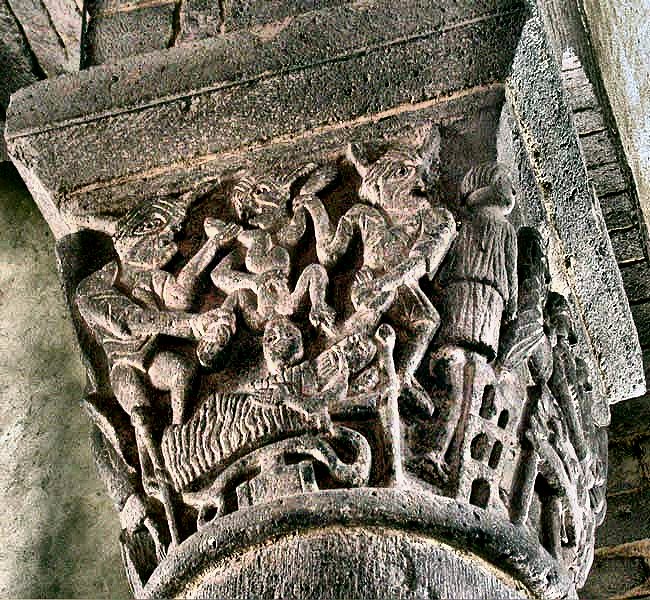
Besse-en-Chandesse (Puy-de-Dôme)
And he cried and said, Father Abraham, send Lazarus, that he may dip the
tip of his finger in water
and cool my tongue; for I am tormented in this flame.
But Abraham said, Son, O remember that thou in thy lifetime receivedst
thy good things
and likewise Lazarus evil things; but now he is comforted
and thou are tormented.
And beside all this, between us and you there is a great gulf fixed;
so that they who would pass from hence to you cannot;
neither can they pass to us that would come from thence.
Then he [the rich man, also known as Dives, another name
for Pluto or Hades, Lord of the Underworld]
said, I pray thee therefore, father, that thou wouldst send him to my father's
house;
For I have five brethren; that he may testify unto them, lest they also come to this place of torment.
Abraham saith unto him: They have had Moses, and the prophets -
let them hear them.
And he [Dives] saith,
Nay, father Abraham: but if one went unto them from the dead,they will repent.
And he [Abraham] said unto him,
If they hear not Moses and the prophets,
neither will they be persuaded, though one rose from the dead."
Luke XVI, 19-31.
Lincoln Cathedral (England):
part of the frieze on
the West front.
On the right, Lazarus is borne up to Heaven, while Dives and his friends
are poleaxed into the jaws of Hell by a devil.
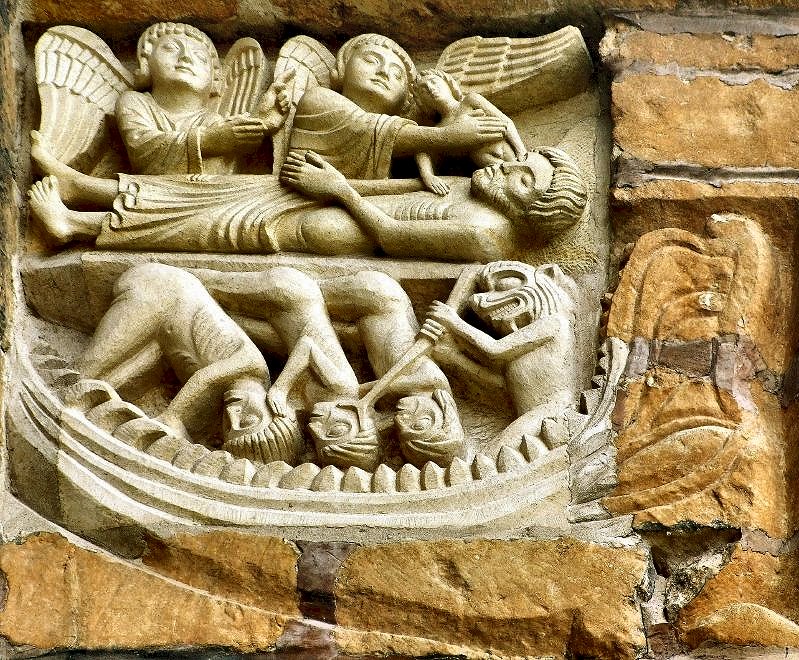
Lincoln - details of the frieze after recent restoration
- photographed by Tina Negus
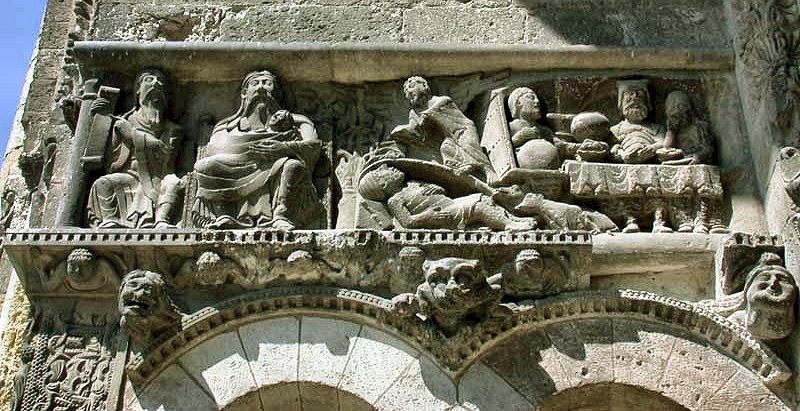
The abbey church of Moissac
(Tarn-et-Garonne) South front: Two dogs lick Lazarus' wounds, while
Dives dines to the right.
On the left sits Abraham with Lazarus clasped to his bosom.
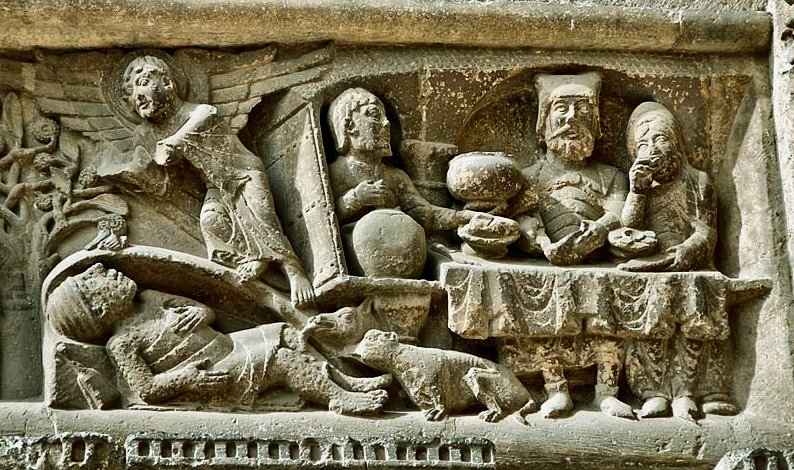
The cathedral at Autun (Saône-et-Loire) is dedicated to St Lazarus,
and on his feast-day (at Midsummer)
lepers were welcomed to hear - in a special space - a celebratory mass.
On this porch-capital Dives is feasting, while behind him a devil awaits.
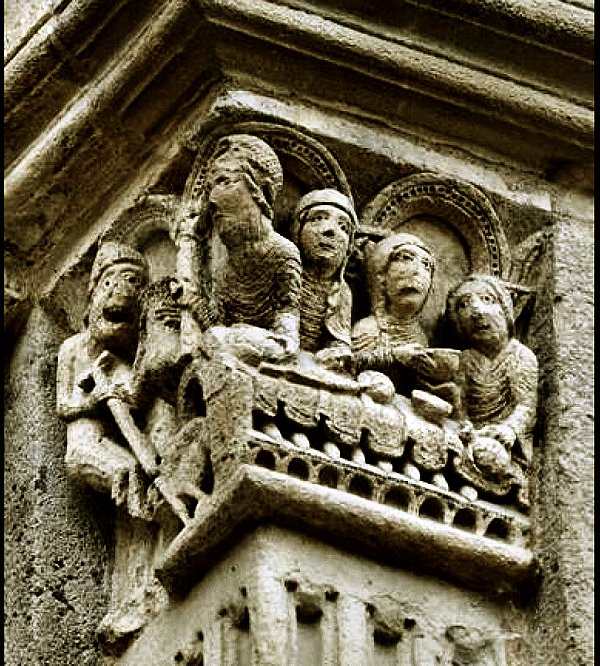
At Saint-Sernin in Toulouse,
Dives dines alone, while the dogs lick the haloed Lazarus' sores.
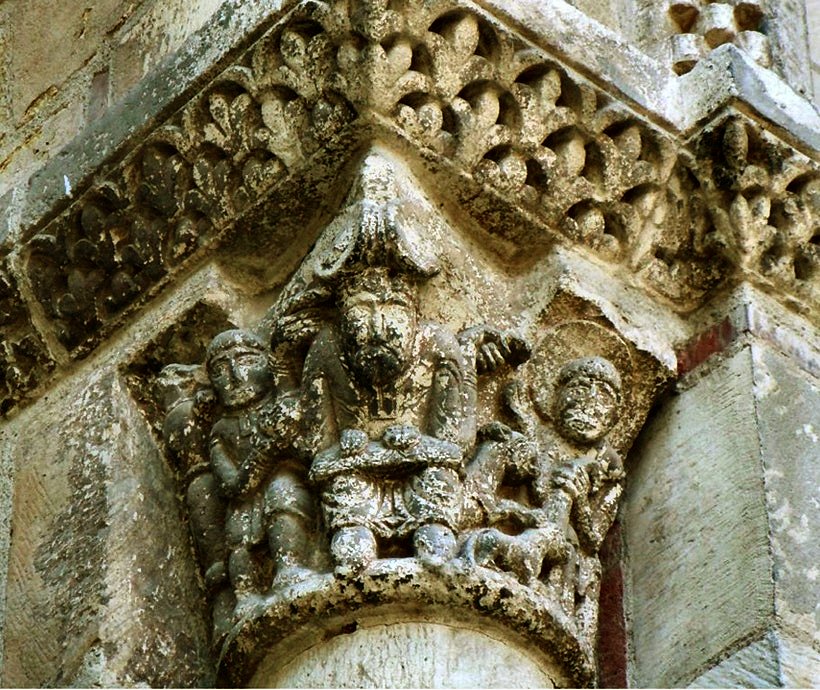
Here is the parable in three panels, in an 11th century manuscript,
the Codex Aureus of Echternach.
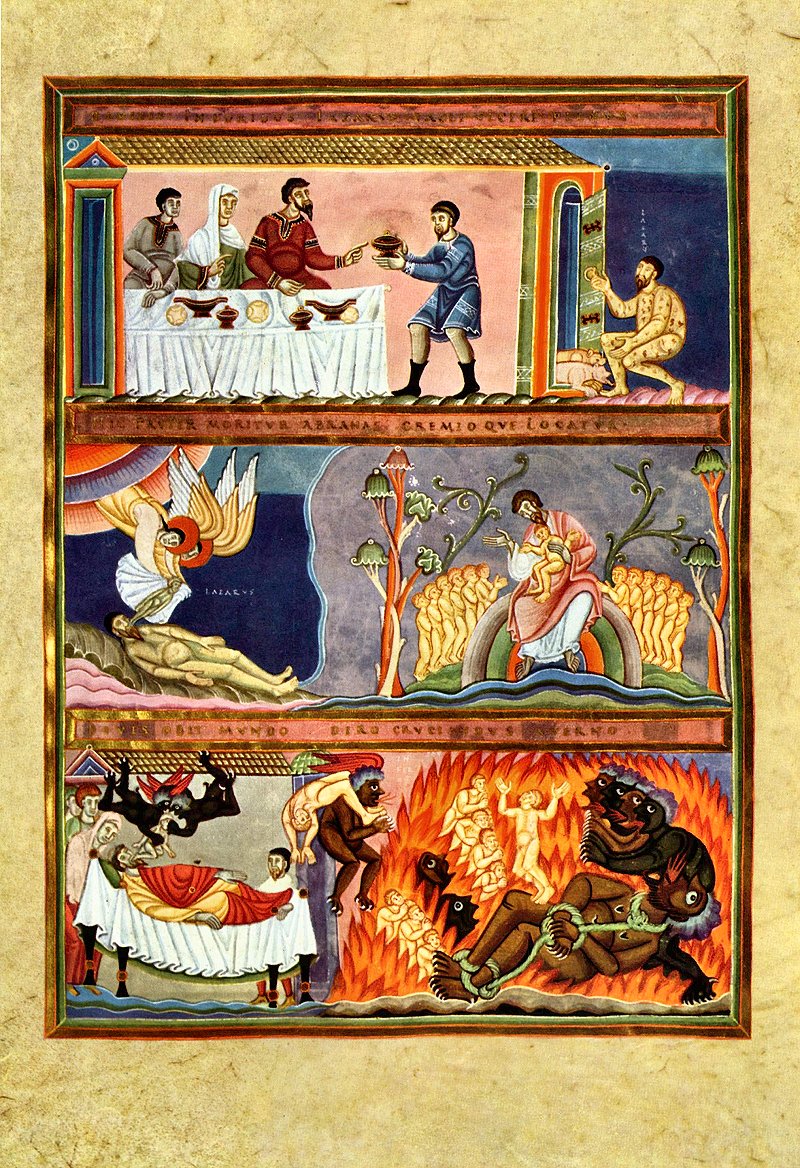
A much more dramatic - almost El Greco - portrayal of the parable can
be seen in the Museum of Romanesque Art in Barcelona.
A wall-painting from the celebrated church of San Clemente in Tahull (Lléida),
it shows Lazarus in a strange perspective,
with a crutch, his feet licked by a kind of long-legged bulldog or mastiff.
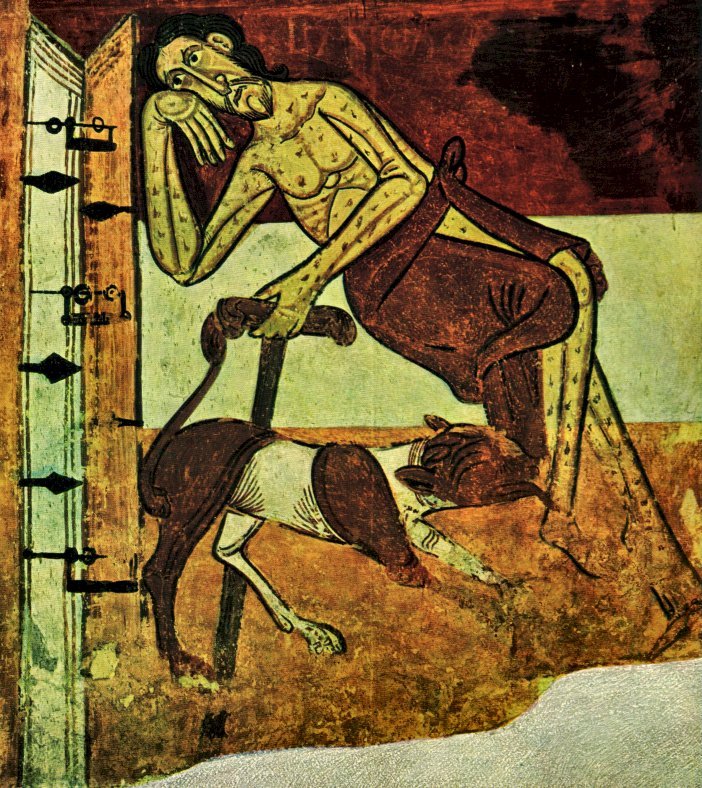
It is worth noting that in some world-views (e.g. Celtic) the dog
is considered to be a Healer.
In others, the dog is a Psychopomp.

A capital in the nave of the famous church dedicated to Mary Magdalen
at Vézelay (Yonne) depicts the after-lives of Dives and Lazarus:
On the main face, Dives is being carried on his bier, nicely wrapped in
linen, while devils gather round to drag him to Hell.
On the left side, Lazarus' soul in infantile innocence is carried up to Abraham's bosom in a mandorla.

At Moissac, a winged devil removes his wealth...
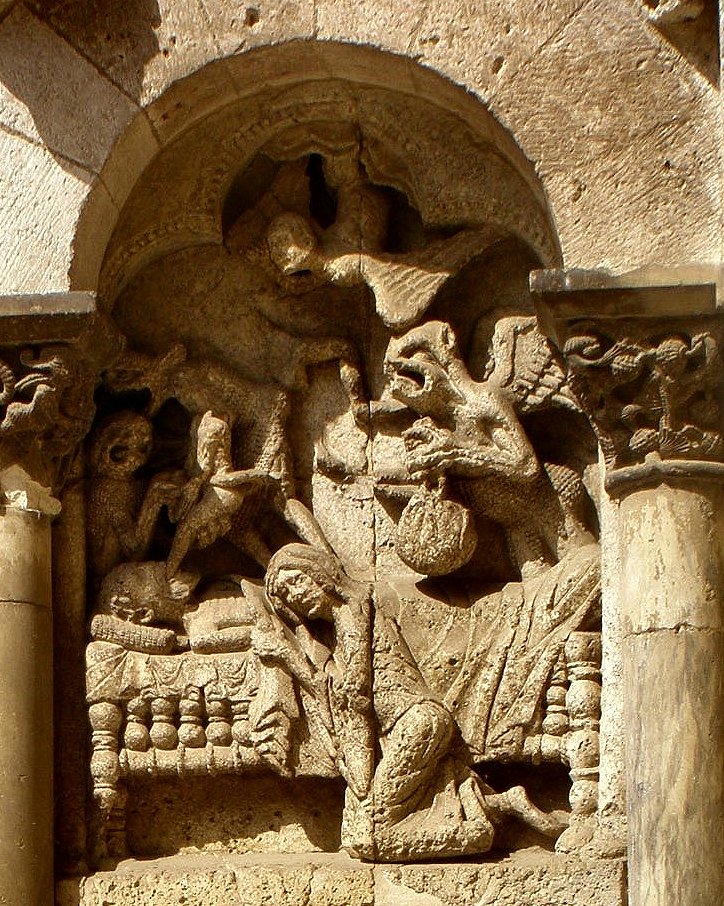
...while an owl and a demon appear to fight over his soul as it issues
from his mouth,
his beautiful wife grieving by his bed.
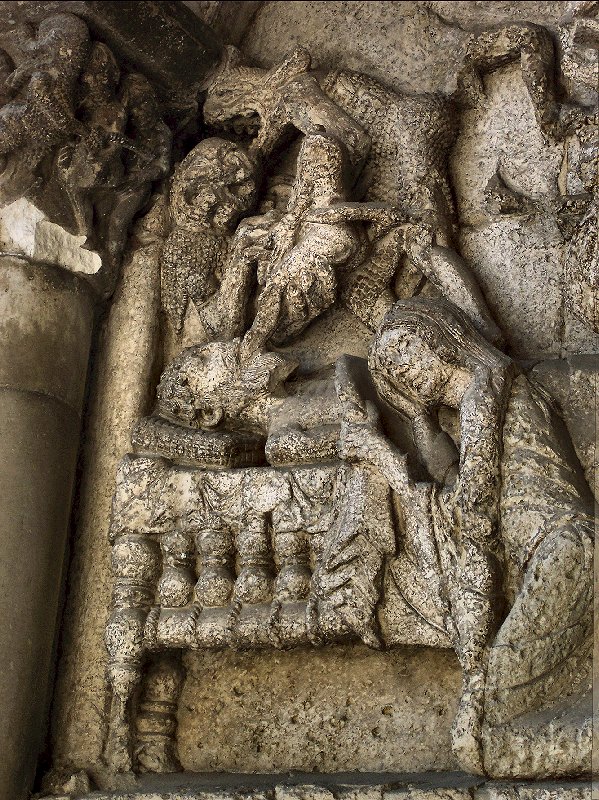
The cathedral at Autun (Saône-et-Loire) is dedicated to St Lazarus,
and on his feast-day (at Midsummer)
lepers were welcomed to hear - in a special space - a celebratory mass.
On this porch-capital Dives is feasting, while behind him a devil awaits.

At Saint-Sernin in Toulouse,
Dives dines alone, while dogs lick the haloed Lazarus' sores.
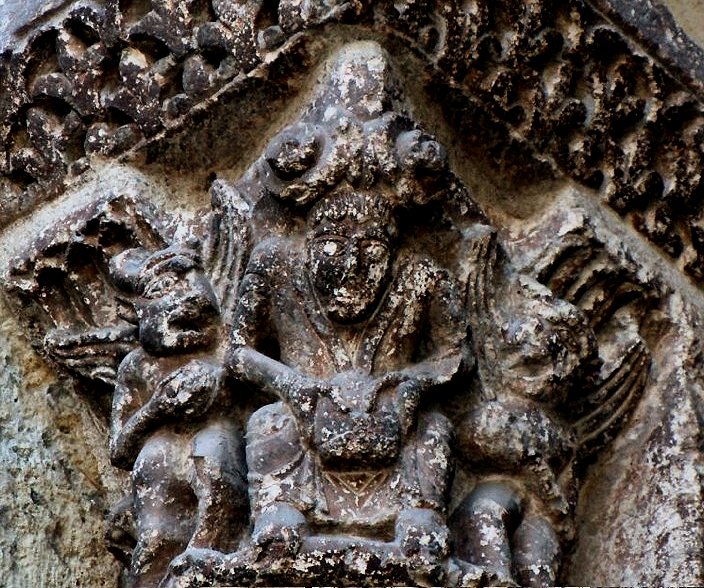
This capital at Lescar (Pyrenées-Atlantiques) is not a dogless
representation of Lazarus writhing under the rich man's table -
but (probably) Salomé dancing before Herod.
Inside the little rural Romanesque church of Lignières
(Loir-et-Cher)
is a post-Romanesque (probably late XIV century) fresco of the story.
Note the boar's head at Dives' feast.
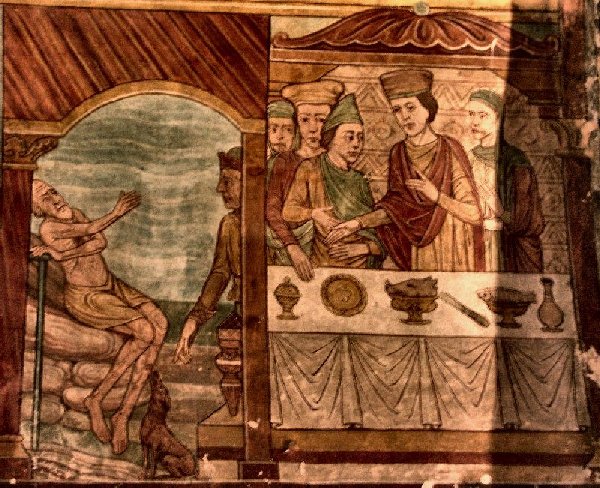
Lazarus' soul, issuing from his mouth, is received by Abraham.
The dog's soul (to the eternal shame of the Abrahamic religions) is
not.
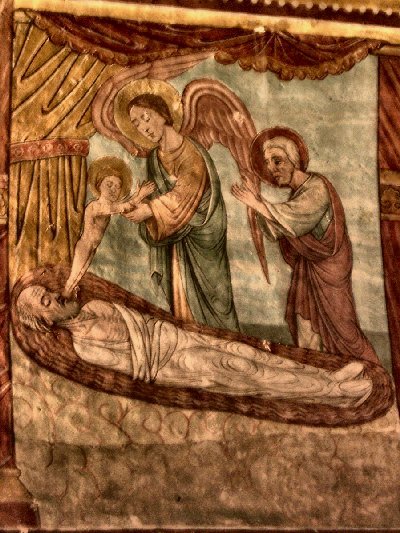
The dying Dives in his four-poster bed (on the right) is approached by Hellish
beasts
while Lazarus' soul (on the left) nestles in Abraham's bosom.
The text reads: Father Abraham, have pity on me and send Lazarus
that he may dip his finger in water to cool me.
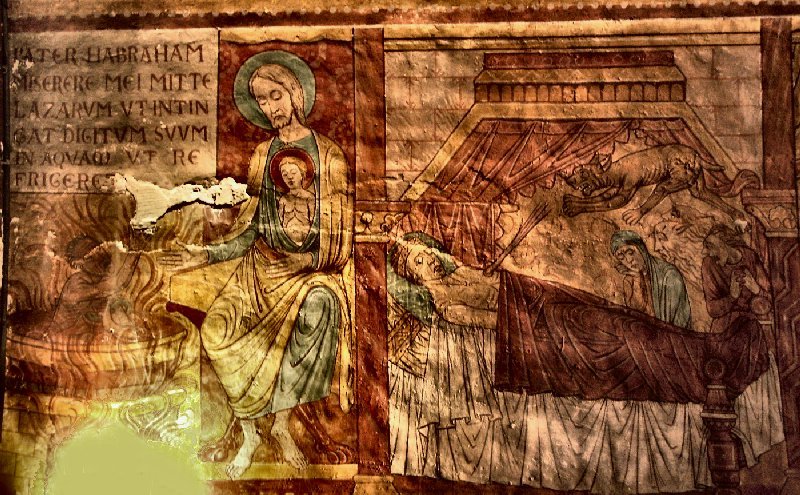
photos by Joël
Jalladeau
Dives in Hell,
University of California, Davis, Shields Library, Special Collections,
UCD BX2080 A2 1497,
detail of f. 73r (Lazarus and poor, thirsty Dives). Book of Hours, use of
Rome. 1475-1499.
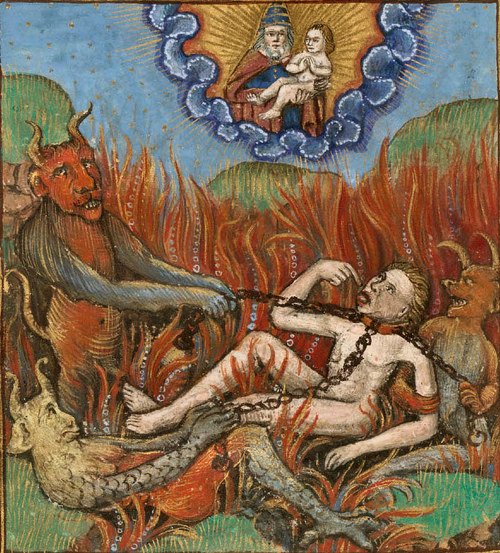
A weathered (as well as compressed) version on the façade at Burlats
(Tarn).
Lazarus.jpg)
In this image in a 15th century German manuscript from Zierenberg
it looks as if Lazarus is being shooed away by a valet.
